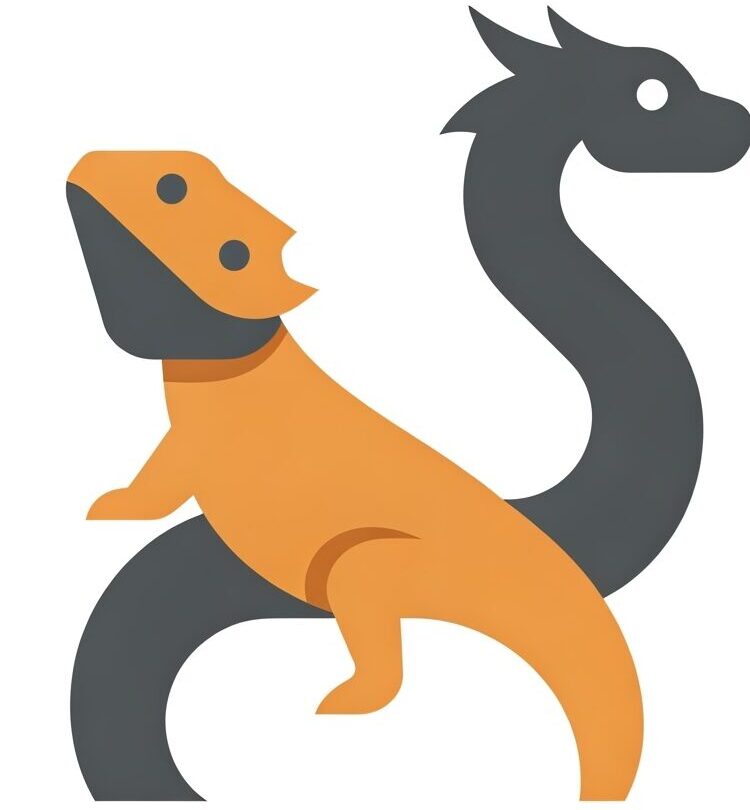Can Bearded Dragons Safely Eat Mealworms? A Complete Guide
Bearded dragons require a carefully balanced diet to thrive. Understanding the nutritional value and potential risks of different food items is crucial for their health, so let’s explore whether mealworms are a safe option.
The Short Answer (Is Mealworms Safe?)
Yes, but with significant caveats. Mealworms can be offered to bearded dragons, but they should only be given as a very occasional treat and not as a staple food. Their high fat content and tough exoskeleton present potential health risks if fed frequently.
Nutritional Value / Potential Risks
Mealworms do offer some protein, but their nutritional profile isn’t ideal for bearded dragons. The primary concerns are:
- High Fat Content: Mealworms are relatively high in fat. A diet consistently high in fat can lead to obesity and liver problems in bearded dragons.
- Low Calcium-Phosphorus Ratio: Mealworms have a poor calcium-to-phosphorus ratio, with significantly more phosphorus than calcium. An imbalance can lead to metabolic bone disease (MBD), a serious and potentially fatal condition.
- Chitinous Exoskeleton: Mealworms have a hard exoskeleton made of chitin. While not inherently toxic, this exoskeleton can be difficult for bearded dragons to digest, especially younger ones. This can increase the risk of impaction, where undigested food blocks the digestive tract.
- Limited Nutritional Diversity: They lack the wide range of vitamins and minerals that bearded dragons need to thrive. Relying on mealworms will lead to nutritional deficiencies.
How to Feed (If Applicable)
If you choose to offer mealworms, do so sparingly.
- Frequency: Offer mealworms no more than once a week, and ideally less often.
- Quantity: Limit the portion size to just a few mealworms at a time, especially for juvenile bearded dragons.
- Gut-Loading: Gut-load the mealworms 24-48 hours before feeding them to your dragon. This means feeding the mealworms nutritious foods, such as leafy greens and vegetables, to improve their nutritional value.
- Dusting: Dust the mealworms with a calcium supplement powder before feeding them to your dragon. This helps to offset the poor calcium-to-phosphorus ratio.
Consider offering black soldier fly larvae instead, as these have a better calcium to phosphorus ratio and are lower in fat.
Important Considerations / Warnings
- Variety is Key: A healthy bearded dragon diet consists primarily of leafy greens and vegetables, supplemented with a variety of insects like crickets, dubia roaches, and black soldier fly larvae. Mealworms should never be the main insect component.
- Observe for Impaction: After feeding mealworms, monitor your bearded dragon for signs of impaction, such as lethargy, loss of appetite, and difficulty defecating. If you suspect impaction, consult a veterinarian immediately.
- Age Matters: Young bearded dragons are more susceptible to impaction due to their smaller digestive tracts. Use extra caution when feeding them mealworms, and consider avoiding them altogether until they are older.
- Consult Your Vet: Before making any significant changes to your bearded dragon’s diet, consult with a veterinarian experienced in reptile care. They can provide personalized recommendations based on your dragon’s individual needs and health.
Conclusion
While bearded dragons can technically eat mealworms, they should only be offered as a very occasional treat due to their high fat content, poor calcium-to-phosphorus ratio, and risk of impaction. Prioritize a varied diet rich in nutritious greens and insects to ensure your bearded dragon thrives.
